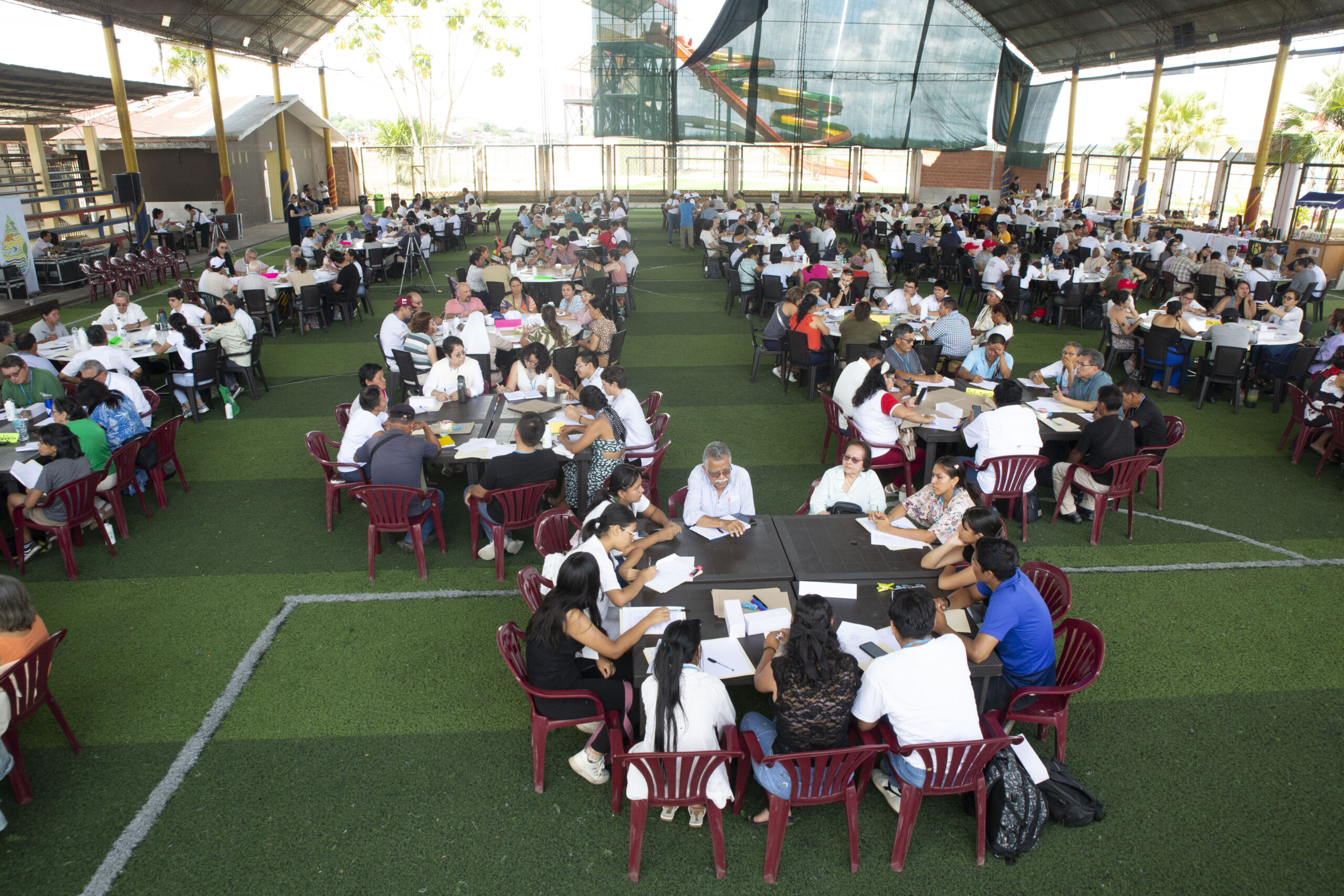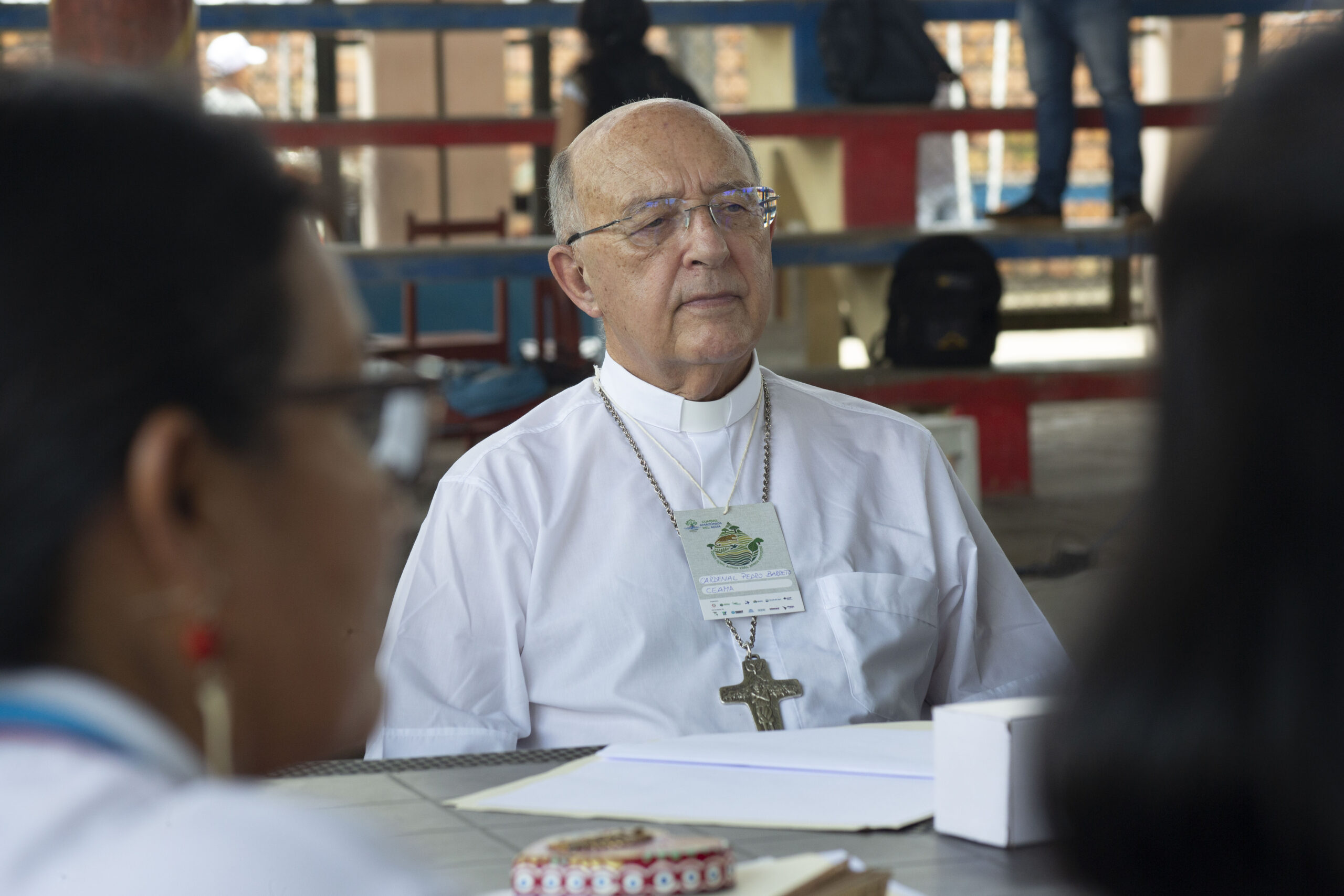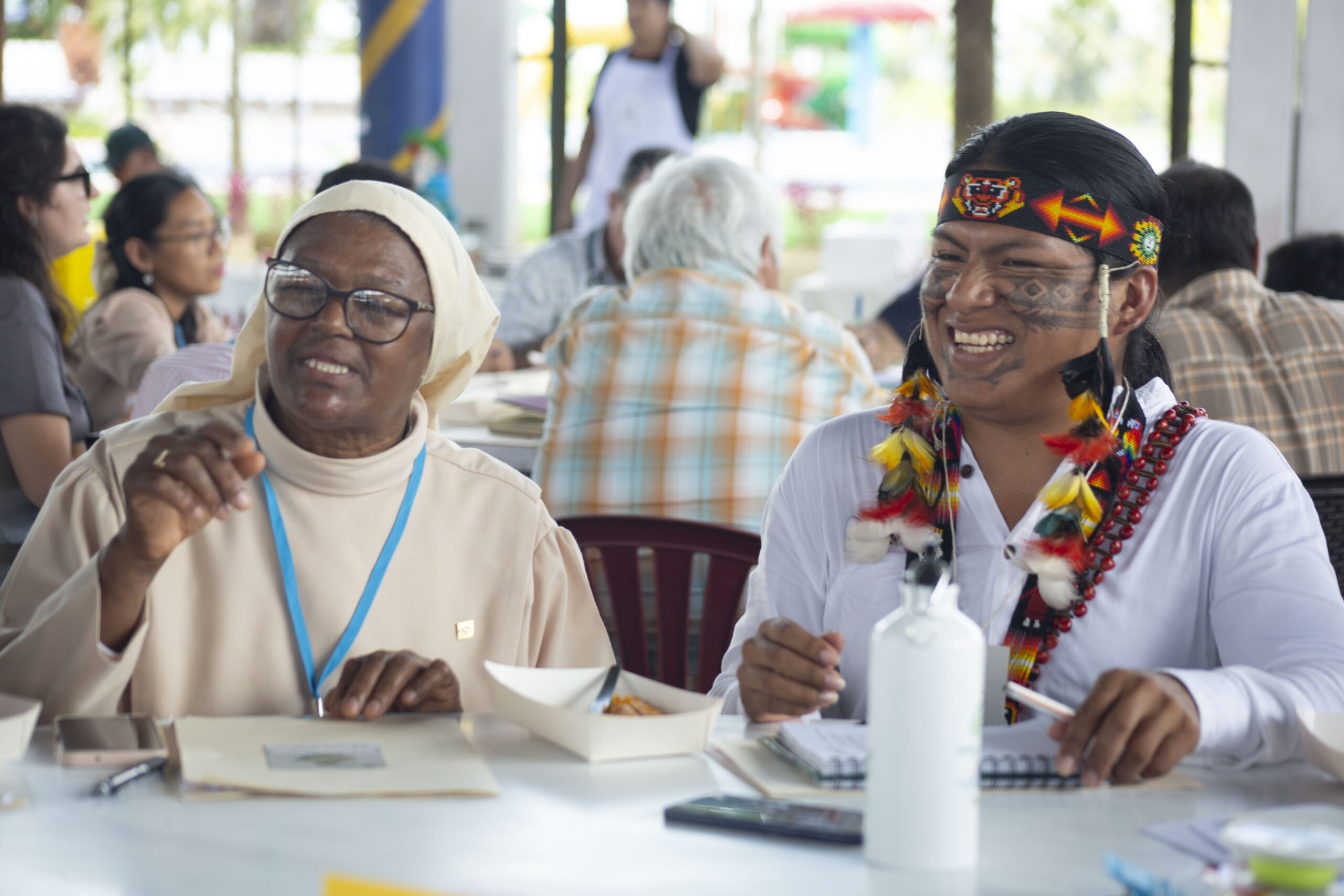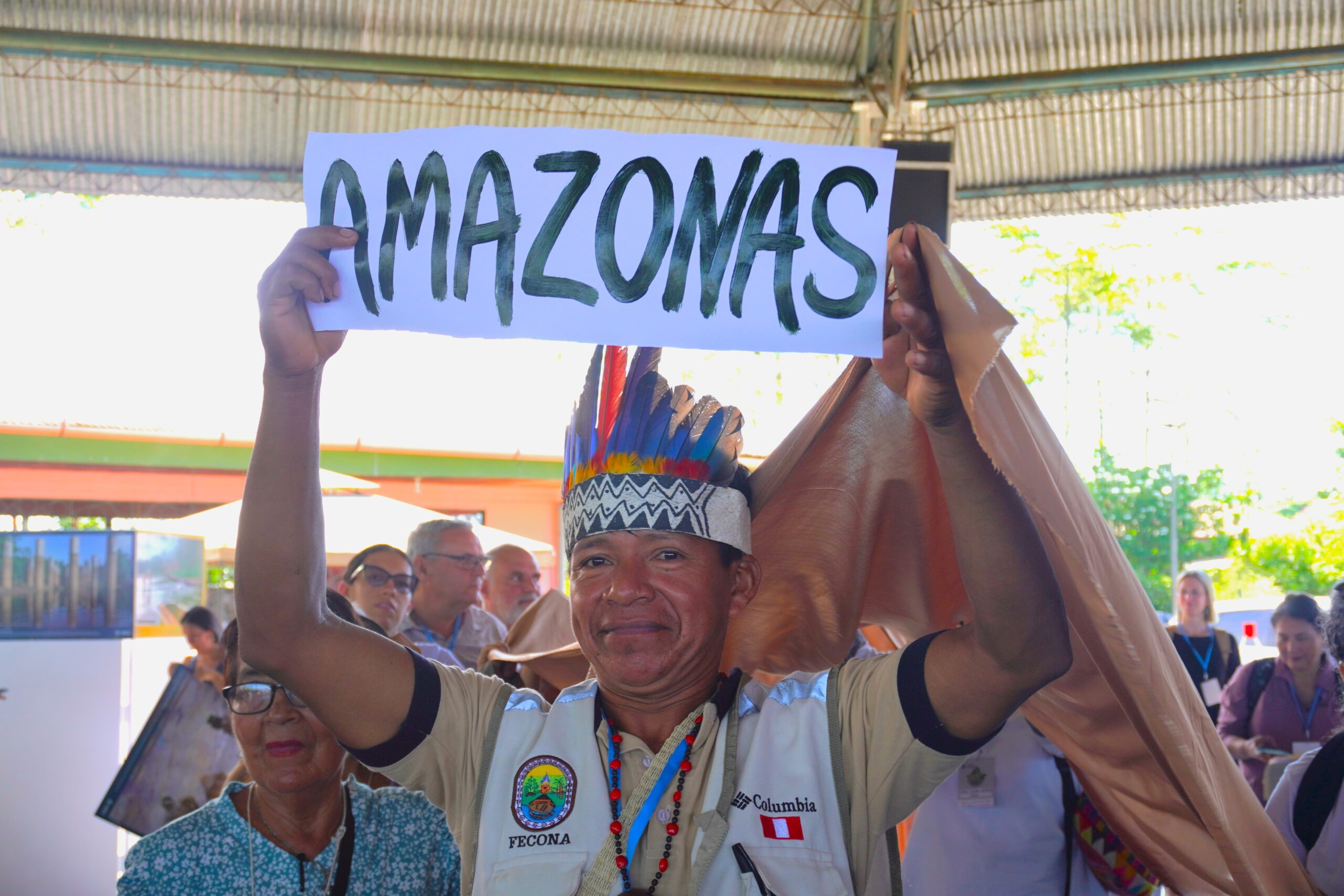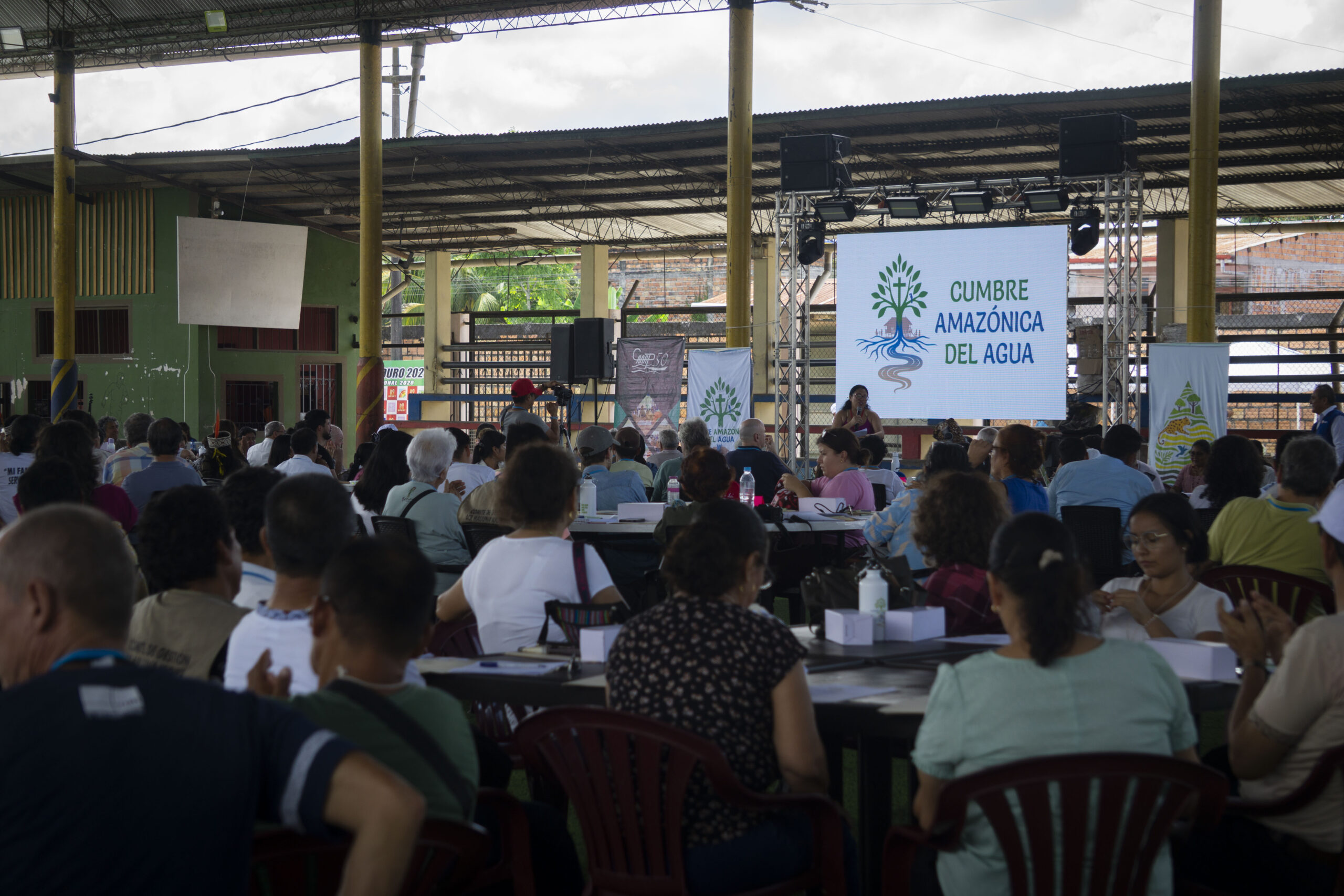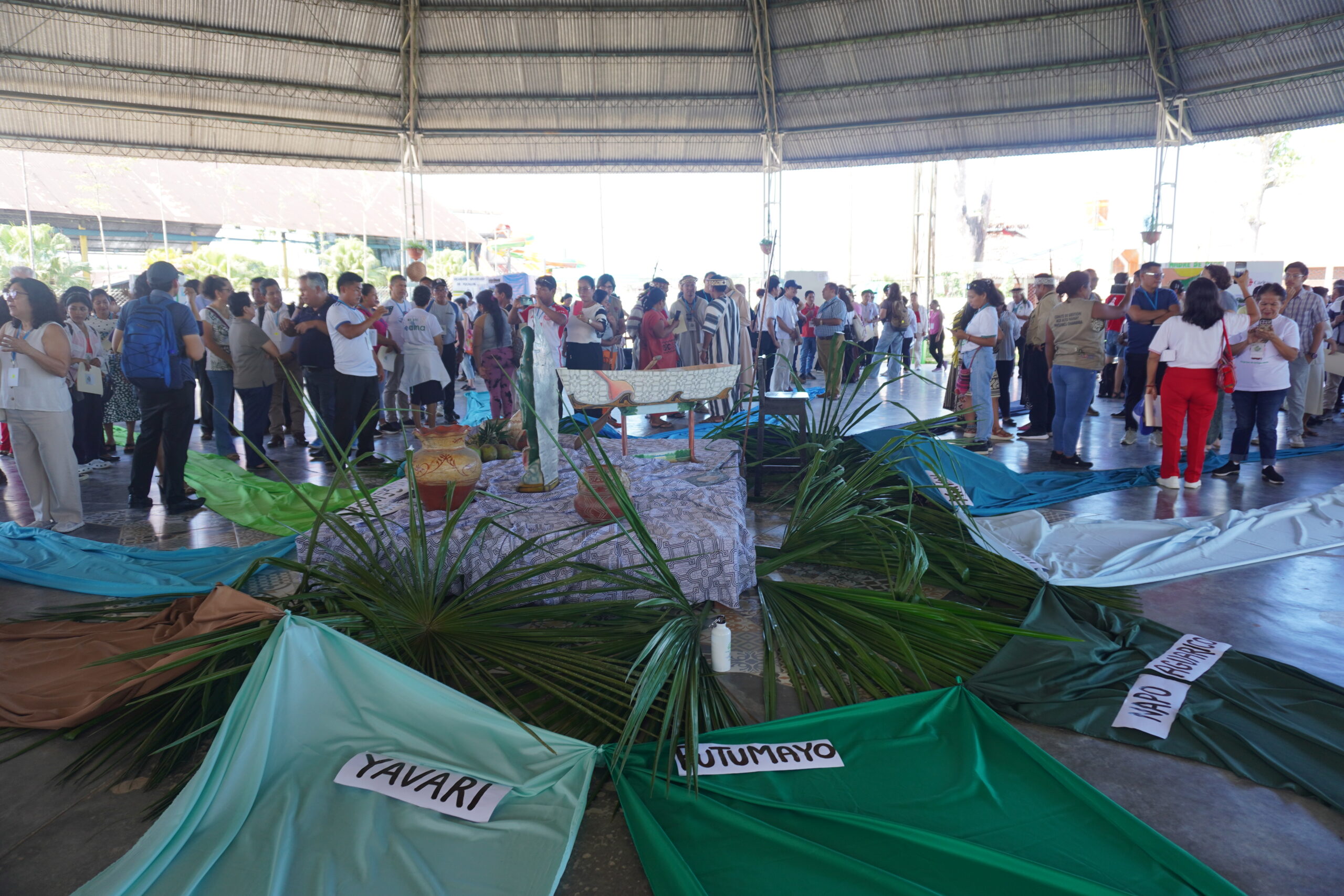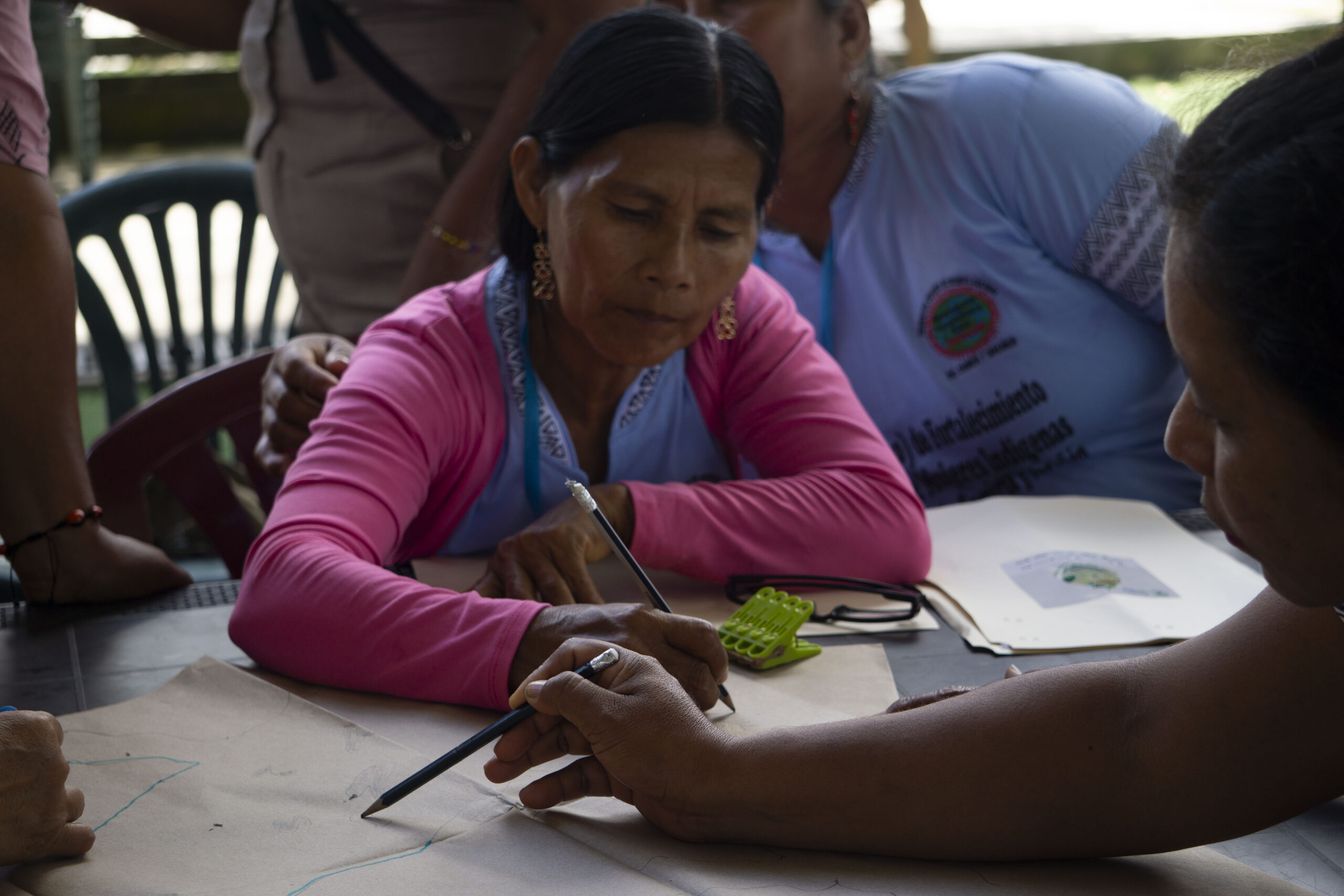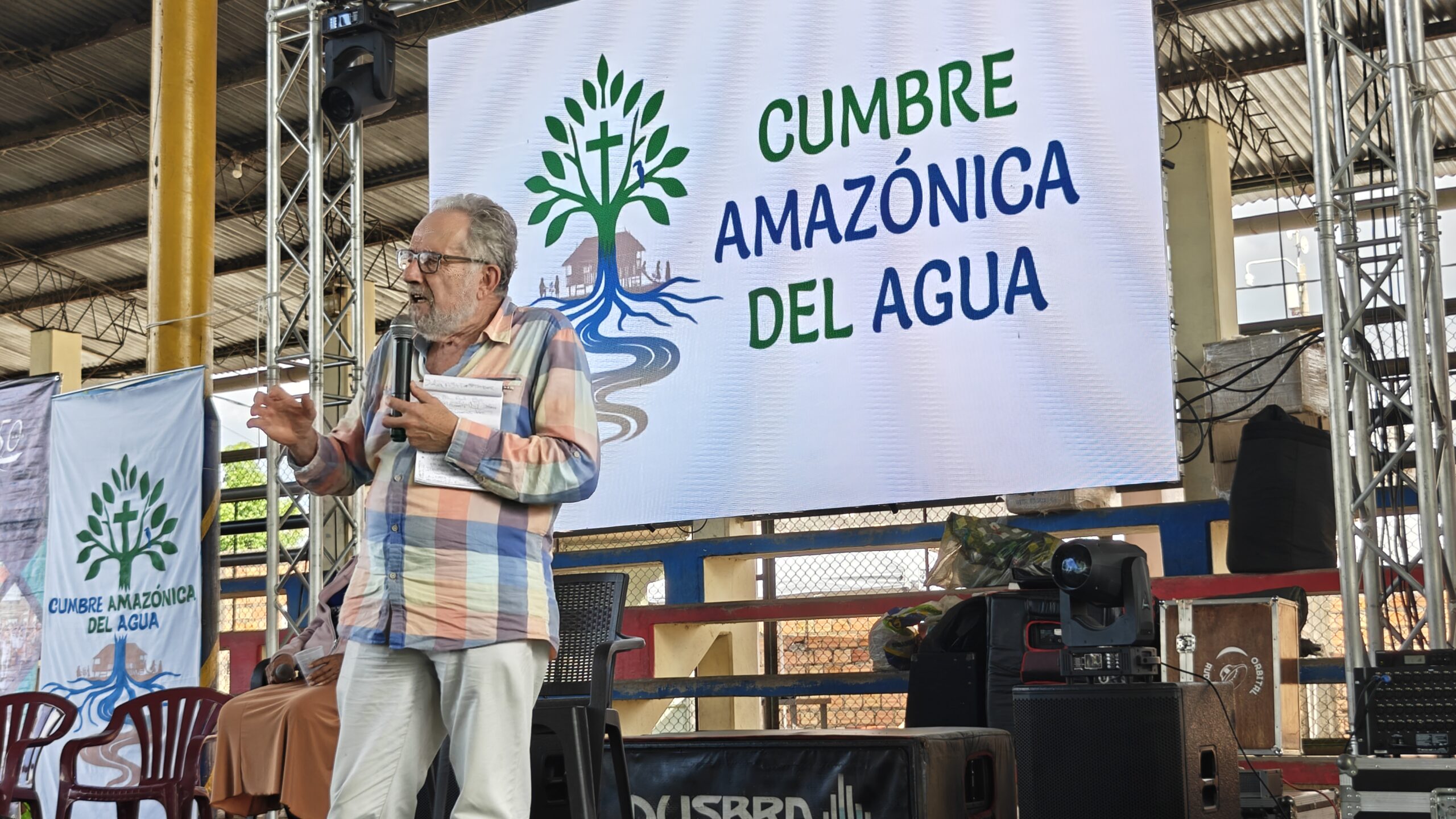Under the slogan “We are water, we are life, we are hope,” the Amazon Water Summit began in the city of Iquitos, bringing together more than 400 participants from various Amazonian countries and peoples, along with social, academic, and ecclesial organizations, to reflect on the reality and future of water, a fundamental resource for life on the planet.
The opening of the Summit was preceded by two significant moments of prayer and spirituality. On the first night, the local Church celebrated Mass for the care of creation, followed by the screening of the audiovisual presentation “Water and the Amazon.” The following day, representatives from different countries participated in a symbolic act of communion and hope, which gave way to the opening day.
A diverse and representative panel
The welcome ceremony was attended by representatives of indigenous peoples, Amazonian youth, the Church, and the Vatican. The testimony of Mariluz Canaquiri, president of the Kukama Huaynakana Federation, stood out, as she stated emphatically:
“Defending the rivers gives us life and will leave life for our future generations. Without rivers there is no forest, and without forest there is no life.”
Canaquiri’s words underscored the role of Kukama women in defending the Marañón River, now recognized as a subject of rights thanks to their struggle, although threats persist from extractivism and pollution.
The cry of the peoples and the voice of the Church
In his greeting, Monsignor Miguel Ángel Cadenas, bishop of the Apostolic Vicariate of Iquitos, recalled that “the best way to get to know a river is to feel it,” and invited us to look at the wounds caused by disasters such as the oil spill in San José de Saramuro and the lack of access to drinking water in communities in Iquitos, where more than 4,000 people live without this basic right.
For his part, Cardinal Michael Czerny, Prefect of the Dicastery for Promoting Integral Human Development, sent a message in which he recalled that “water is not a ‘useful’ resource, but a fundamental human right, a common good that we must protect and share.”
Likewise, Cardinal Pedro Barreto, president of CEAMA, highlighted the importance of holding the summit in Iquitos, where 60% of the population lacks drinking water, and reaffirmed the continuity of the path begun in the Amazon Synod and in Querida Amazonía.
Youth, justice, and common action
The first day of the Summit also highlighted the contribution of young people, who weeks earlier had played a leading role in the Amazon Youth Pre-Summit. For Micaela Mercado Flores, spokesperson for this process, “water is culture, it is identity, and this is not a struggle of ages, but of all.”
From civil society, Abel Chiroque, representative of the Ombudsman’s Office, emphasized that the meeting should not remain mere declarations, but should translate into concrete actions against illegal mining and environmental degradation.
The agenda for the coming days includes participatory analysis spaces such as the “Global Café,” thematic panels, and simultaneous workshops that will address the link between water, justice, biodiversity, and cultures. The meeting will conclude on Friday, October 3, with the reading and approval of the Final Declaration of the Amazon Water Summit, inspired by the four dreams of Querida Amazonia.
